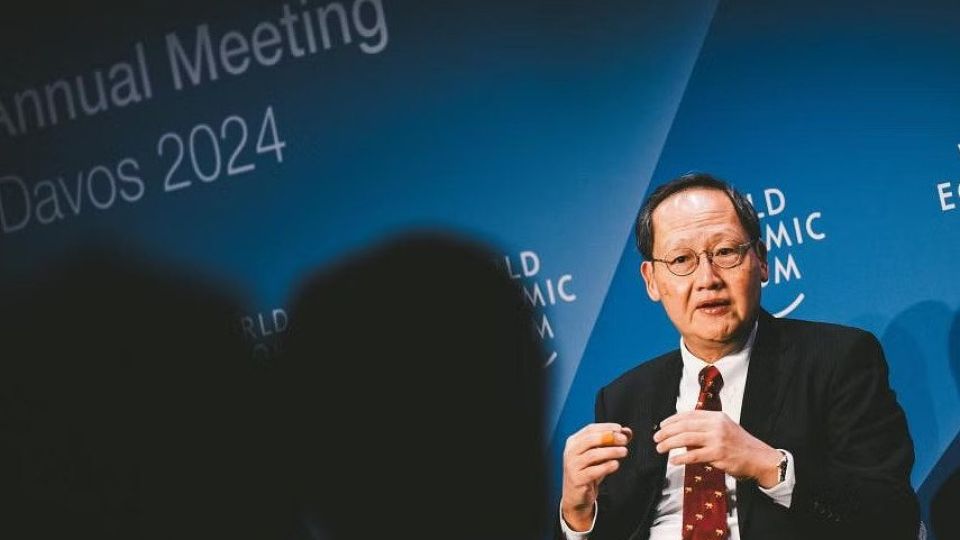January 17, 2024
SINGAPORE – DAVOS, Switzerland – Governments around the world need to make consistent and coherent policy decisions to speed up the global shift towards a low-carbon economy, said panellists at a discussion during the World Economic Forum (WEF) Annual Meeting 2024.
At the same time, companies should be willing to commit to paying a “green premium” when choosing costlier but more environmentally friendly technology, which will net them benefits in the long run.
These points were raised by representatives from the First Movers Coalition who took part in a panel on scaling up green solutions to avoid the worst consequences of the climate crisis.
The discussion included Singapore’s Second Minister for Trade and Industry Tan See Leng, and took place on Jan 16 in Davos, Switzerland, where the WEF is being held from Jan 15 to 19.
The First Movers Coalition is a grouping of over 95 companies and 13 government partners.
Launched in 2021 at the COP26 environmental conference in Glasgow, the coalition is led by the WEF and US Department of State, and aims to promote the development and deployment of sustainable technologies of the future.
Singapore joined in 2022.
At present, much of government policy overemphasises the supply side of the problem, such as carbon pricing, said panellist Carlos Torres Vila, chairman of Spanish bank BBVA.
In contrast, the First Movers Coalition focuses on aggregating and increasing demand for near-zero-emission goods and services.
To speed up progress towards decarbonisation and get all parties – rather than just first movers – on board, government policies need to change, he added.
Dr Tan was asked how to get governments to join these efforts.
He said Singapore tries its best to work with different governments, such as with the United States on the Indo-Pacific Economic Framework for Prosperity, which includes collaboration on the transition to clean economies.
Both countries are also collaborating on a feasibility study of the entire Asean regional power grid to create a framework that will uplift over 650 million people in the region, he added.
“Those are small steps, but actually each step is a very significant milestone. And I think we need to accelerate them,” said Dr Tan.
He added that government continuity is also important in this space.
“That consistency, in terms of making sure that trust has been built, can actually take us a lot further,” he said.
On carbon premiums, Dr Tan noted that Singapore started imposing a carbon tax in 2023.
“It is a ratchet up. I think we are one of the first countries in our region to do so. It is a very bold step,” he said, adding that premiums collected will go into research areas such as renewable energy or low-carbon technologies.
Earlier in the session, Dr Tan highlighted that governments can act as enablers of low-carbon technologies and markets.
He gave the example of how Singapore is looking to develop low-carbon ammonia solutions on a commercial scale, and has shortlisted six consortia to put forth proposals on the subject.
An announcement on this front will be made towards the end of January.
This would move Singapore another step closer to being one of the first countries in the world to test and deploy a direct ammonia combustion power plan and to support the holistic assessment of ammonia bunkering for shipping, said Dr Tan.
In his opening remarks, US special presidential envoy for climate John Kerry said the barrier to achieving a low-carbon global economy is not that the various stakeholders do not know what to do, or that solutions are not available.
“It is that we are not doing any of what we need to do big enough and fast enough. And it is a challenge, a major crisis, with respect to our ability to be able to win this battle,” he said, adding that money is critical to the effort.
Companies in the First Movers Coalition are committed to spending more on green solutions, even if they have to explain the choices to shareholders, he pointed out.
“It is only by making that decision that we are going to be in a place where we get to accelerate this transition fast enough,” he said.
“The only issue for all of us is not whether or not we will get to a low-carbon economy globally. We will. The only question is will we get there in time to meet the challenge of the scientists in order to avoid the worst consequences of this crisis – that is what is at stake,” said Mr Kerry.


